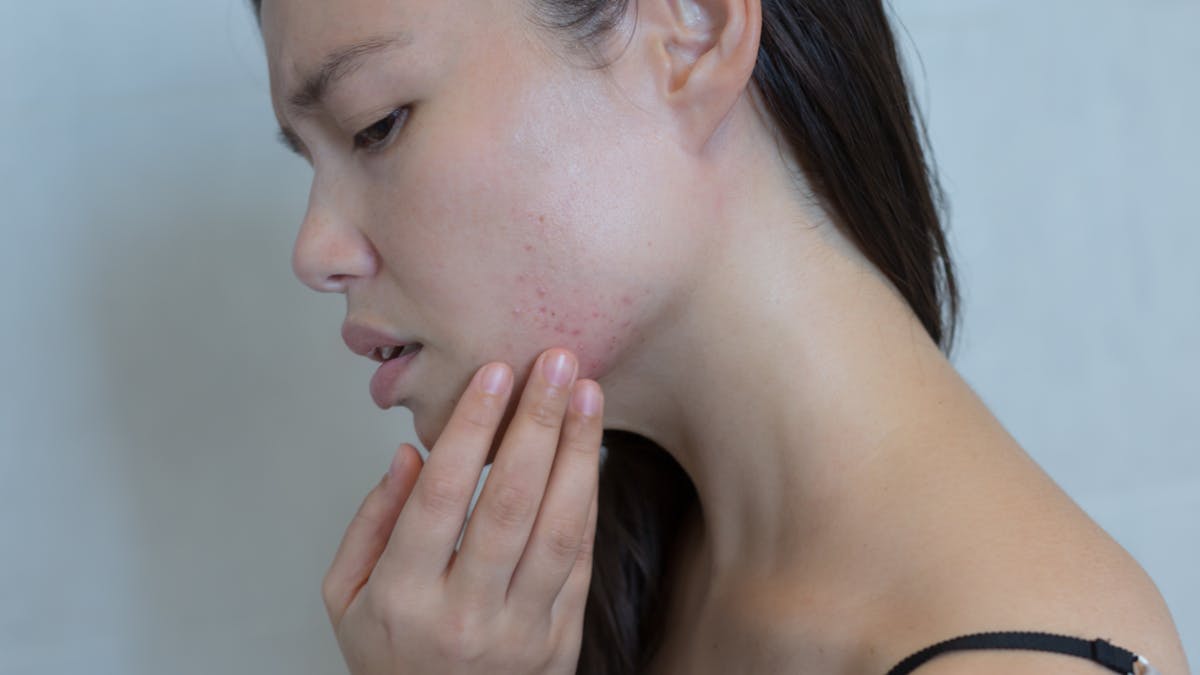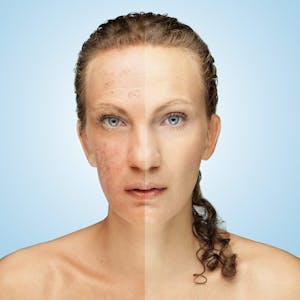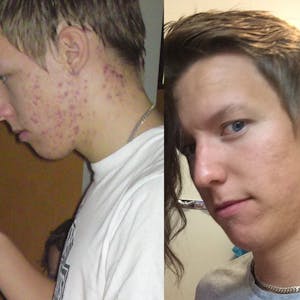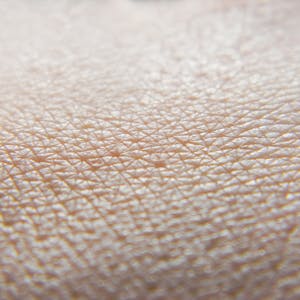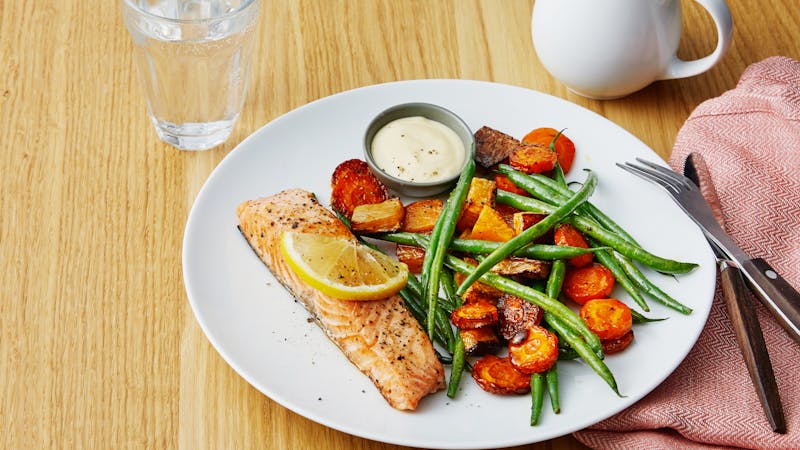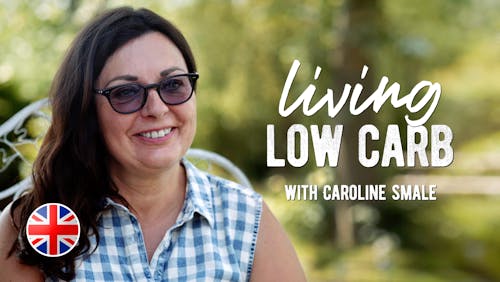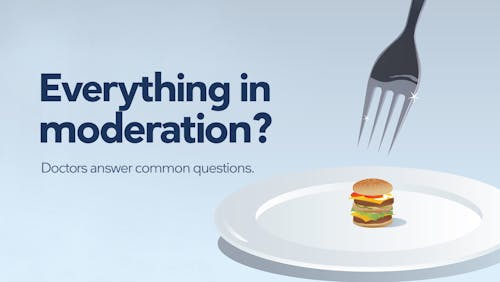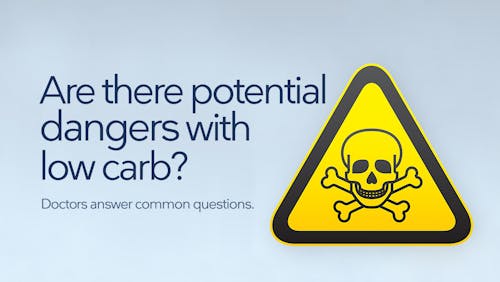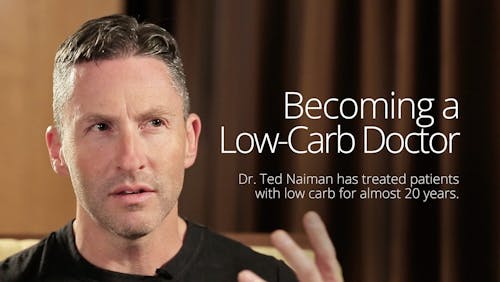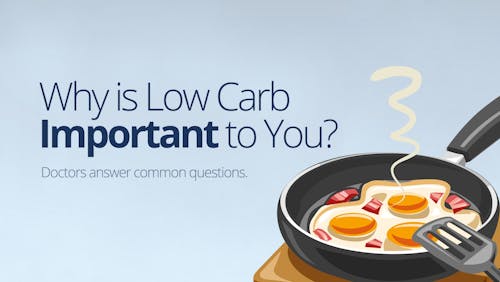Can keto or low carb diets improve acne?
If you have acne, you may have wondered whether following a low carb or keto diet can help clear up your skin.
While medical opinions on the matter have differed over the years, some research suggests carbohydrate consumption may just be the reason for pesky facial breakouts.
By avoiding carbohydrates in your diet, you may be able to improve the quality of your skin and prevent future flare-ups.
In this guide, you’ll learn about the connection between diet and acne, plus what you can do to potentially decrease the frequency and severity of your acne through food.
How does acne develop?
Although nearly 90% of adolescents and teens have acne, it’s fairly common in adults, too. In fact, it’s estimated that in Western countries, around 50% of people in their 20s and 30s struggle with acne.1 Yet, it’s very rare in many cultures that follow traditional diets.2
Acne develops as a result of complex interactions that take place within the skin. Sebaceous glands located in the skin’s outer layer are connected to hair follicles. These glands produce sebum, an oily substance that lubricates the hair and skin cells, which are constantly being shed and replaced.3
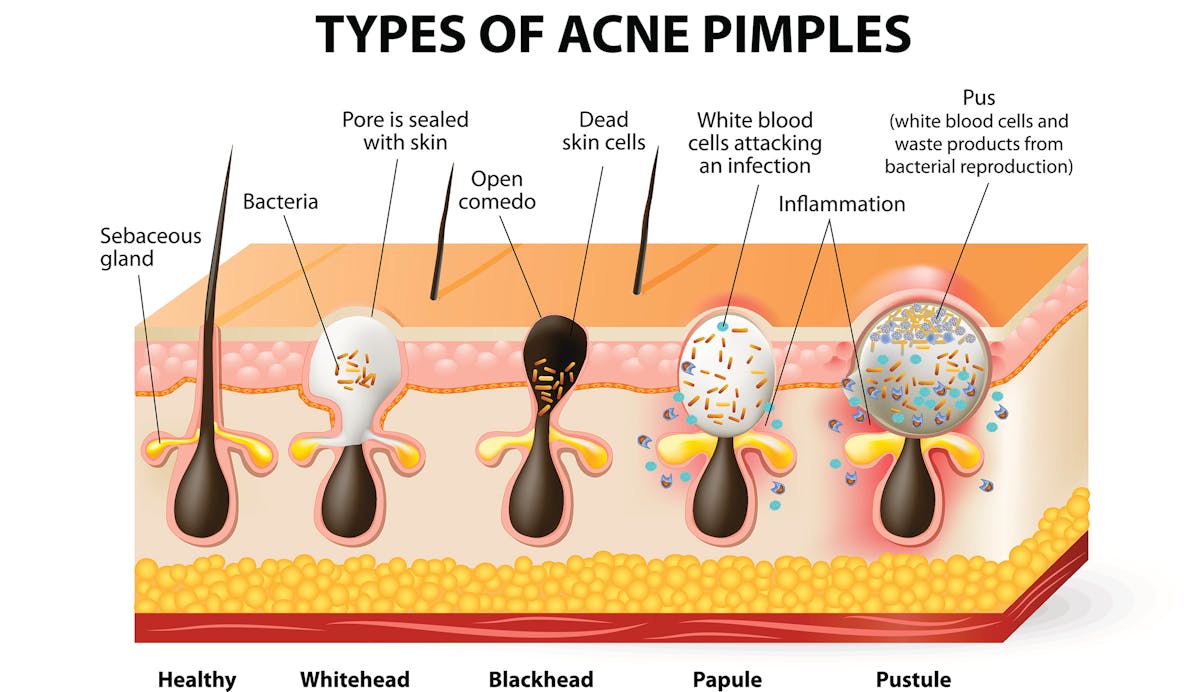
Additionally, skin cell production ramps up, and dead skin cells aren’t shed in the normal fashion. Instead, these cells combine with excess sebum, causing blocks or plugs. While this process is occurring, bacteria that feed on sebum also enter the picture.
Similar to the gut microbiome, skin maintains its own bacterial balance. One type of bacteria known as P. Acnes lives deep within the hair follicles and is normally present in the outer skin layer in small amounts.
But in people who have acne, concentrations of P. Acnes increase dramatically, causing inflammation that leads to whiteheads, pustules, and cysts.
The role of sugar and carbs in acne
Early studies prior to the 1960s led to the belief that diets high in sugar and refined carbs worsened acne.4 However, after experimental research failed to show a link between specific foods and acne, diet was no longer considered a major contributor.
However, the tide has turned again as mounting research suggests refined or high glycemic index carbohydrates may be a main dietary culprit in causing acne.5
For instance, a 2007 study observing 43 young acne-prone men found that a low-glycemic load (GL) diet led to a greater reduction in acne lesions than a high-GL diet.6
What’s more, the low-GL group experienced a decrease in androgen and insulin levels, improvement in insulin sensitivity, and weight loss. By contrast, the other group had increases in weight, insulin levels, and insulin resistance.7Low carb and ketogenic diets for acne
Although trials exploring carb restriction and acne haven’t been done yet, many people have reported that their skin has become much clearer as a result of following a low carb or keto diet.8 Moreover, there are logical reasons why minimizing carb intake would be helpful for acne.A 2012 article by Italian researchers discusses the potential benefits of ketogenic diets for acne, including the following:9
- Lower insulin levels: High insulin levels stimulate the increased production of skin cells, sebum, and androgens, thus setting the stage for acne eruptions. Ketogenic diets decrease insulin levels, often dramatically.
- Anti-inflammatory effects: Inflammation drives acne progression. Very low carb and ketogenic diets have been shown to reduce inflammation.10
- Decrease in IGF-1 (insulin-like growth factor 1): Ketogenic diets decrease levels of IGF-1.11 Like insulin, IGF-1 increases sebum production and has been found to play a large role in acne.12
In a 2013 review on therapeutic uses of ketogenic diets for various conditions, these Italian researchers state that although the emerging evidence for the use of keto diets in acne is promising, randomized controlled trials (RCTs) are needed to confirm these benefits.13
Keto or low carb: Which is best for acne?
Since there aren’t any studies on low carb vs. keto diets for acne yet, it’s difficult to determine what level of carb restriction is needed to achieve the best results.
Similar to losing weight or reducing blood sugar, the necessary carb reduction for potential acne control likely varies from person to person.
Tips for maximizing the benefits of a keto or low carb diet for acne
Below are some additional dietary tweaks that may be useful. They are based on preliminary evidence, or small studies that need to be repeated to know for sure whether the suggested effects are real.
- Consume fatty fish often: Long-chain omega-3 fatty acids found in fish are potentially anti-inflammatory and have been credited with possibly improving acne.14 The best sources include salmon, mackerel, sardines, herring, and anchovies.
- Eat low carb vegetables: Leafy green and cruciferous vegetables may help promote hormonal regulation and improve skin health. Dermatology researcher Bodo Melnik recommends a Paleo diet rich in vegetables for acne management.15
- Avoid or limit dairy: Dairy has been shown to increase levels of insulin and IGF-1.16 Although skim milk seems to have the strongest link to acne, cheese may also be problematic for some people.17
Would you like to give up dairy for a few days to see if you start to notice a difference? We’ve put together this 3-day dairy-free keto meal plan to help you get started. Each day provides less than 20 grams of net carbs per day, so you can stay keto without the dairy. - Drink green tea: Green tea is an excellent source of the antioxidant EGCG (Epigallocatechin gallate). A 2016 study found that green tea extract seemed to significantly reduce acne lesions in adult women with moderate to severe acne.18
- Avoid or limit dark chocolate: Although earlier studies showed no difference in acne when chocolate was compared to other sweets, a 2016 study found that even virtually sugar-free, 99% dark chocolate might worsen breakouts in acne-prone men.19 For this reason, you may want to minimize intake of dark chocolate, just to be safe.
- Focus on fresh low carb foods: Even if you don’t eat sugary and starchy foods, you may still be consuming ingredients that can cause skin issues. Processed meats often contain sugar, corn syrup, fillers, or other additives that can raise insulin levels and possibly provoke inflammation. Stick to fresh food whenever possible and be sure to read nutrition labels.
- Give the diet some time: Paradoxically, some people report a worsening of acne shortly after starting a keto or low carb diet. However, this appears to be short-lived and may be part of the keto-adaptation process.20 Overall, breakouts seem to improve with carb restriction long term in most people.
Summary
While the evidence is still preliminary, there are many reasons to believe that low carb and keto diets may improve acne. Feel free to keep reading for several stories from people who have tried it. You can also use our free guides below to get started with low carb eating.
By choosing nutrient-dense, minimally processed low carb foods, you may be giving yourself the best shot at clearer, healthier skin.
Eating low carb is safe, and most people love the food. So, go ahead and try it out for a few weeks, and see what happens to your skin!
Stories
Low carb basics
Can keto or low carb diets improve acne? - the evidence
This guide is written by Franziska Spritzler, RD and was last updated on June 19, 2025. It was medically reviewed by Dr. Bret Scher, MD on October 3, 2022.
The guide contains scientific references. You can find these in the notes throughout the text, and click the links to read the peer-reviewed scientific papers. When appropriate we include a grading of the strength of the evidence, with a link to our policy on this. Our evidence-based guides are updated at least once per year to reflect and reference the latest science on the topic.
All our evidence-based health guides are written or reviewed by medical doctors who are experts on the topic. To stay unbiased we show no ads, sell no physical products, and take no money from the industry. We're fully funded by the people, via an optional membership. Most information at Diet Doctor is free forever.
Read more about our policies and work with evidence-based guides, nutritional controversies, our editorial team, and our medical review board.
Should you find any inaccuracy in this guide, please email andreas@dietdoctor.com.
British Journal of Dermatology 2015: A global perspective on the epidemiology of acne [overview article; ungraded] ↩
JAMA Dermatology 2002: Acne vulgaris
A disease of Western civilization [observational prevelance study; weak evidence] ↩American Family Physician 2012: Diagnosis and Treatment of Acne [overview article; ungraded] ↩
Journal of the American Academy of Dermatology Directors Association 2010: Diet and acne [overview article; ungraded] ↩
It is presumed that part of the mechanism could be refined carbs effect on hormonal regulation
Journal of Drugs in Dermatology 2014: Diet and acne update: carbohydrates emerge as the main culprit [overview article; ungraded]
American Journal of Clinical Dermatology 2021: Effects of diet on acne and its response to treatment[overview article; ungraded]
↩The American Journal of the Clinical Nutrition 2007: A low-glycemic-load diet improves symptoms in acne vulgaris patients: a randomized controlled trial [randomized trial; moderate evidence]
↩It’s important to point out that this wasn’t really a low carb diet; the low-glycemic-load carbs accounted for about 44% of the total dietary intake (roughly 220 grams of carbs for someone consuming 2,000 calories a day).
Could there have been an even greater improvement with a low carb or keto diet providing less than 10% of energy from carbs? That wasn’t tested. ↩
Anecdotal reports; no scientific evidence ↩
Skin Pharmacology and Applied Skin Physiology 2012: Nutrition and acne: therapeutic potential of ketogenic diets [overview article; ungraded] ↩
Lipids 2008: Comparison of low fat and low carbohydrate diets on circulating fatty acid composition and markers of inflammation [non-controlled study; weak evidence] ↩
Clinical and Experimental Rheumatology 2000: Reduction in serum leptin and IGF-1 but preserved
T-lymphocyte numbers and activation after a ketogenic diet
in rheumatoid arthritis patients [non-controlled study; weak evidence] ↩Clinical, Cosmetic and Investigational Dermatology 2015: Linking diet to acne metabolomics, inflammation, and comedogenesis: an update [overview article; ungraded] ↩
European Journal of Clinical Nutrition 2013: Beyond weight loss: a review of the therapeutic uses of very low carbohydrate (ketogenic) diets [overview article; ungraded] ↩
Acta Dermato-venereologica 2014: Effect of dietary supplementation with omega-3 fatty acid and gamma-linolenic acid on acne vulgaris: a randomised, double-blind, controlled trial [randomized trial; moderate evidence] ↩
Nestlé Nutrition workshop series. Paediatric programme 2011: Evidence for acne-promoting effects of milk and other insulinotropic dairy products [overview article; ungraded] ↩
Journal of the European Academy of Dermatology and Venereology 2016: The constellation of dietary factors in adolescent acne: a semantic connectivity map approach [case-control study; very weak evidence]Nutrients 2018: Dairy intake and acne vulgaris: A systematic review and meta-analysis of 78,529 children, adolescents, and young adults ↩
Complementary Therapies in Medicine 2016: Does supplementation with green tea extract improve acne in post-adolescent women? A randomized, double-blind, and placebo-controlled clinical trial [randomized trial; moderate evidence] ↩
International Journal of Dermatology 2016: Dark chocolate exacerbates acne [non-controlled study; weak evidence]
↩This is based on anecdotal experience. No scientific evidence ↩
